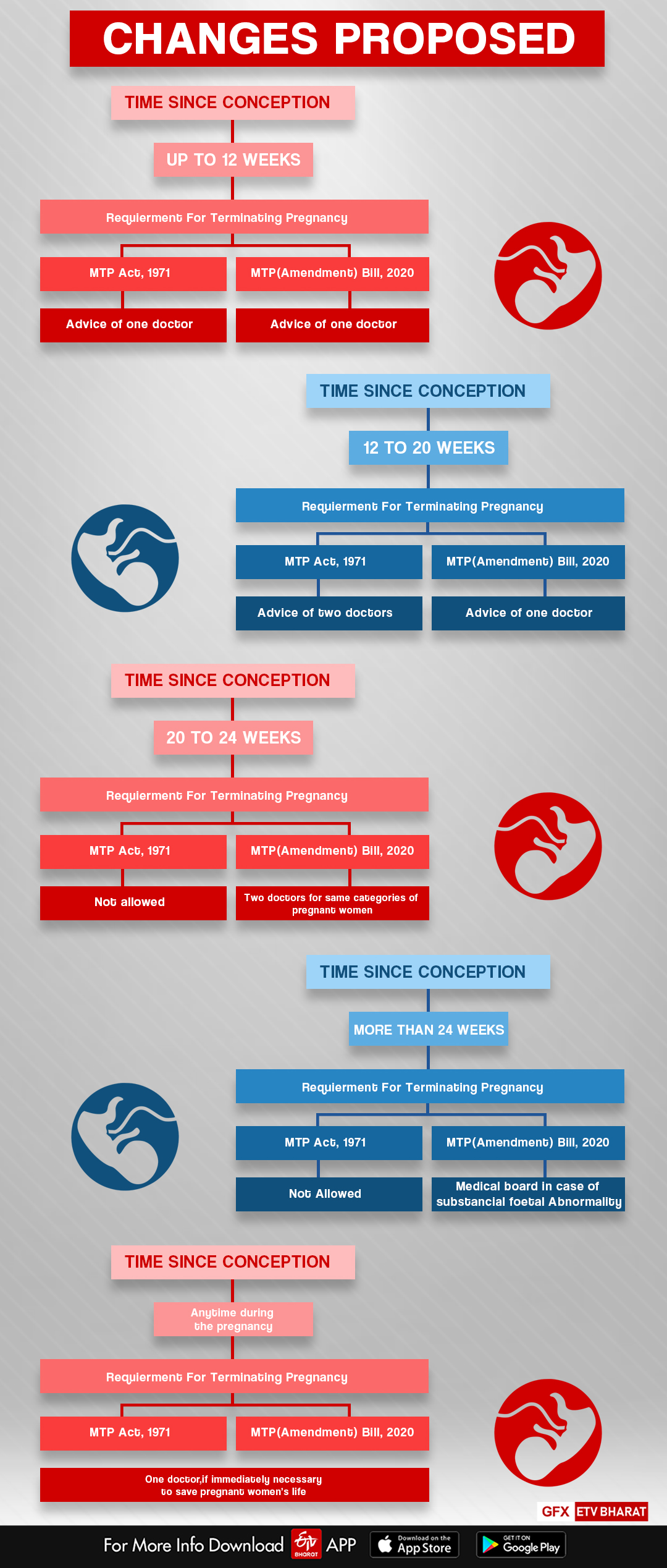New Delhi: Rajya Sabha on Tuesday passed a bill to raise the upper limit for permitting abortions from the present 20 weeks to 24 weeks for "special categories of women" including rape survivors, victims of incest, minors and the differently-abled.
The Medical Termination of Pregnancy (Amendment) Bill, 2020 to amend the Medical Termination of Pregnancy Act, 1971 was passed by voice vote.
The bill was passed by the Lok Sabha about a year ago.
A demand to send the bill to a select committee of the Rajya Sabha was defeated by voice vote, along with some other amendments proposed by members.
Union Health Minister Harsh Vardhan said the amendments in the bill have been made after studying global practices and wide consultation within the country.
Highlights of the Bill
The Act regulates the conditions under which a pregnancy may be aborted. The Bill increases the time period within which abortion may be carried out.
Currently, abortion requires the opinion of one doctor if it is done within 12 weeks of conception and two doctors if it is done between 12 and 20 weeks.
The Bill allows abortion to be done on the advice of one doctor up to 20 weeks, and two doctors in the case of certain categories of women between 20 and 24 weeks.
The Bill sets up state-level Medical Boards to decide if pregnancy may be terminated after 24 weeks in cases of substantial foetal abnormalities.
Changes proposed in conditions for terminating a pregnancy at different gestational periods

READ: Parliament passes Medical Termination of Pregnancy (Amendment) Bill
World At A Glance
According to a study, about 67% of the countries in the world (which have a federal law regulating pregnancy) require authorisations by at least one health care provider to undergo an abortion.
The World Health Organisation does not specify any maximum time limit after which pregnancy should not be terminated.
Across the world, countries have set varying conditions and time limits for allowing abortions, based on factors such as foetal viability (the point at which the foetus may survive outside the womb), foetal abnormalities, or risk to the pregnant woman.
READ: MP assembly passes bill ban on web series for spreading obscenity, crimes
UK: In the UK, a pregnancy may be terminated at any time: (i) to protect the life of the woman, (ii) to prevent grave permanent injury to the physical or mental health of the woman, or (iii) if the child is at risk of being seriously handicapped. Further, when determining the injury to the woman’s physical or mental health, her actual or reasonably foreseeable environment may be considered
South Africa: In South Africa, a pregnancy may be terminated up to 12 weeks at the request of the woman, and between 12 to 20 weeks if: (i) it poses a risk to the mental or physical health of the woman, (ii) there is a risk of foetal abnormalities, (iii) it was caused due to rape, or (iv) continuing the pregnancy would affect the socio-economic circumstances of the woman. It is also permitted beyond 20 weeks if there is a risk to the life of the woman or the foetus, or if there is a risk of foetal abnormalities
USA: In some countries, such as the US, the law on abortion varies across states. In 1973, the US Supreme Court had ruled that abortion was legal. However, some states, such as Alabama, ban abortions in almost all cases unless there is a serious health risk to the mother, or if the foetus has a lethal anomaly. Some states prohibit abortion after the foetal heartbeat can be detected or as early as six weeks (Georgia, Kentucky). Some states allow abortions up until 24 weeks (New York) or till the foetus can survive outside the womb (California, Rhode Island), or if there is a risk to the woman’s health or risk of foetal abnormalities.



